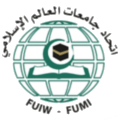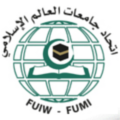Quality is a priority issue within strategic planning in industrial, commercial and administrative sectors, in its being a prerequisite for business and market competitiveness. Besides, with the growing interest in the quality of educational output, quality and accreditation have become a stepping-stone towards enhancing educational systems, developing their contents and modernizing their means to better serve the recipient categories. In this context, it is no wonder then that quality should figure prominently in educational theories about the means to rise to the various challenges facing university education.
This surge of interest in quality and accreditation resides in a number of factors: namely, low levels of curricula and educational programmes, lack of adequately skilled human resources, poor educational administration as well as rarity of research works and teaching materials. It is also motivated by the need to review those concepts and norms underlying the standards for quality, through applying a new conceptual framework within which the standards for quality at universities are established, in the midst of sweeping globalization that undermines specificities and influences quality and accreditation standards.Hence the special importance that has been accorded to quality and accreditation standards within educational reforms aiming to raise performance to international standards and achieve the best levels of excellence and competitiveness, in total deference to local specificities and international standards.
This has proved the need to provide basic frameworks for regulating quality and accreditation standards from an Islamic perspective, the ultimate aim being to upgrade educational capacities and human resources within universities, fostering indigenous cultures, sustaining output, and ensuring maximum degree of flexibility in educational orientations…
Download PDF
Comments are closed.


